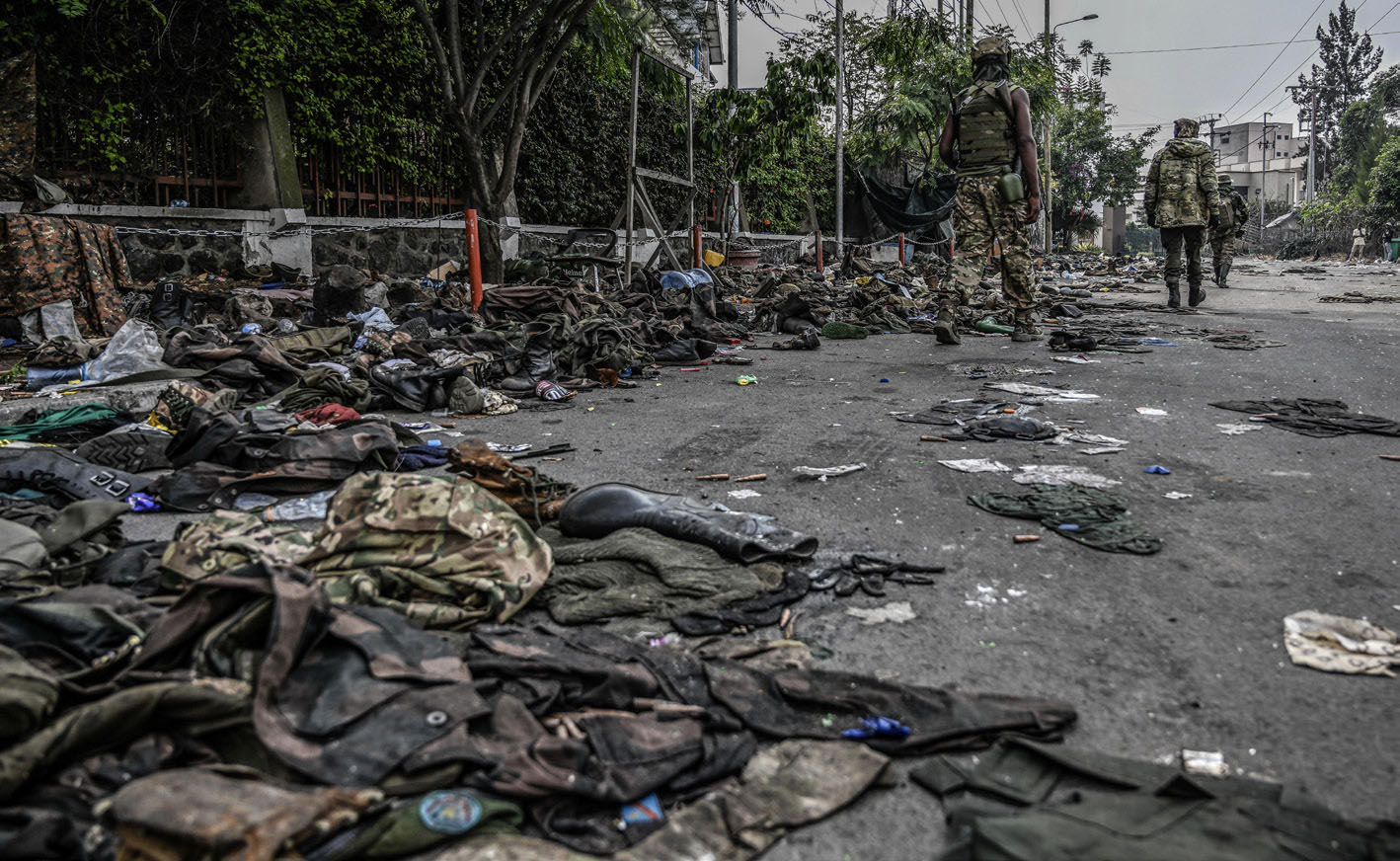Gambiaj.com – (GOMA, DR. Congo) – M23 rebels have intensified their grip on eastern Democratic Republic of the Congo (DRC), capturing key towns and edging closer to Bukavu, the capital of South Kivu province. Their rapid territorial gains have sent shockwaves across the region, prompting diplomatic condemnations and escalating tensions between regional powers.
By Tuesday afternoon, as international statements of condemnation poured in, the rebels had seized control of Goma’s airport. By Wednesday, they had begun establishing a parallel administration in the city, expelling pro-Kinshasa mercenaries and consolidating their hold over North Kivu province. Their advance continued unchallenged into South Kivu, with the towns of Kiniezire and Mukwidja falling to M23 forces by Thursday morning—bringing them within 65 kilometers of Bukavu.
Corneille Nangaa, the only public figure claiming leadership of M23, has made it clear that his ambitions extend beyond the eastern provinces. “Our objective is neither Goma nor Bukavu but Kinshasa, the source of all the problems,” Nangaa told Reuters on Monday, referencing the DRC’s capital, which lies more than 2,500 kilometers away. Speaking at a press conference in Goma on Thursday, he reiterated his goal to “recreate the state,” citing the weakness of the Congolese government as the root cause of armed group proliferation.
Nangaa, a former elections chief turned opposition figure, has a fraught history with President Félix Tshisekedi. He admitted to rigging the 2018 election in Tshisekedi’s favor before their political fallout. After failing to run in the 2023 election, Nangaa fled the country and formed the Alliance Fleuve Congo, a coalition that later integrated M23 and other armed factions. His prominence has risen sharply in recent days, especially after M23’s successful military campaign.
The escalation has also claimed high-profile casualties. The governor of North Kivu was killed on the frontline during the rebel advance toward Goma, further underscoring the volatile situation. Nangaa now appears poised to lead M23’s breakaway administration, rather than recognize Kinshasa’s authority.
Tshisekedi’s government has sought to strike back in absentia. In August 2023, a Kinshasa court sentenced Nangaa to death. Just before Goma fell, the justice ministry announced plans to auction off his properties, including villas, a hotel, and an apartment block. However, the government sees him as a proxy for a more powerful force—Rwandan President Paul Kagame. International reports, including from the United Nations, have accused Rwanda of arming and financing M23, an allegation Kigali denies. Nangaa’s political alliance has already been sanctioned by the European Union, the United States, Belgium, and Switzerland due to its ties with armed groups.
A War of Words and a Shifting Battlefield
The rapid M23 advance has left regional leaders scrambling to respond. Angolan President João Lourenço, who had attempted to broker peace last December, issued a statement demanding the immediate withdrawal of Rwandan forces from Goma. Meanwhile, South Africa, which lost 13 soldiers during the M23 offensive, issued a stronger rebuke. President Cyril Ramaphosa directly blamed Rwanda for the violence, drawing an angry response from Kagame, who accused him of lying and claimed South African troops were acting as aggressors.
The situation in Goma bears echoes of the past. M23 previously seized the city in 2012 before being pushed out by UN peacekeepers within a year. A subsequent multinational peace agreement—brokered by South Africa—kept the rebels at bay for nearly a decade. But this time, the landscape has changed. While UN peacekeepers remain in Goma, they are receiving surrendering government troops rather than mounting a counteroffensive. The South African-led regional peacekeeping force, which forms the backbone of Kinshasa’s external military support, has struggled against the battle-hardened and better-equipped M23 fighters.
As the rebels press toward Bukavu, the Congolese army and allied militia have mounted resistance in Nyabibwe, a mining town about 65 kilometers away. However, if M23 manages to seize Bukavu, it could consolidate North and South Kivu into a de facto breakaway region—one that would no longer share a border with Kinshasa-controlled territories.
For now, M23’s momentum shows no signs of slowing, and with regional tensions rising, the future of eastern DRC hangs in the balance.
Source: The Continent










